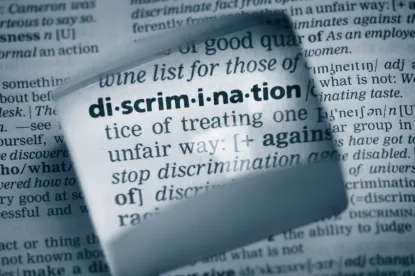On June 3, 2022, the full court of the U.S. Court of Appeals for the District of Columbia held in a 9-3 decision in Chambers v. District of Columbia, that when an employer transfers an employee or denies an employee’s request for a transfer because of the employee’s race, color, religion, sex, or national origin, the employer violates Title VII by discriminating against the employee in her “terms, conditions, or privileges” of employment.[1] The decision is momentous because it overruled a 23-year old precedent—Brown v. Brody[2]—that said discriminatory transfers or denials of transfers are not actionable unless the employee suffered “objectively tangible harm.” The D.C. Circuit, in common with many other federal courts, has long imposed this tangible harm requirement articulated in Brown because of the view that Title VII is not a general “civility code” and that employees challenging discriminatory decisions should show more than de minimis harm lest courts be involved in supervising myriad routine business decisions.
Factual Background of the Chambers Case
Mary Chambers worked for the DC Office of the Attorney General (OAG) for more than 20 years prior to this litigation, first as a clerk and later as a Support Enforcement Specialist and investigator. In 2000, she began working as an enforcement specialist in the Child Support Services Division, initially in the Interstate Unit, where after 2005, she worked on cases in which she helped parents who reside outside the District to enforce child support orders against non-custodial parents living in the District. In 2008, Chambers requested a transfer out of the Interstate Unit and into the Intake Unit, which processes initial requests from parents seeking child support orders. Ms. Chambers believed she had a larger caseload than many of her colleagues, and she sought the Intake transfer and numerous transfers to other units in the Office, and the OAG repeatedly denied her requests. Meanwhile, she saw that male colleagues obtained transfers when they requested them.
In 2014, after filing a charge with the Equal Employment Opportunity Commission (EEOC) and receiving a right to sue notice, she filed suit against the District under Title VII of the Civil Rights Act of 1964, alleging that those denials of her transfer requests constituted unlawful sex discrimination and unlawful retaliation for filing discrimination charges with the EEOC. The district court granted summary judgment to the District because under circuit precedent the denials of her “purely lateral transfer requests” did not cause any “materially adverse consequences” which it considered to be an essential element of her claims, relying on Brown v. Brody. A panel of the Court of Appeals affirmed on the same ground, but Judges Tatel and Ginsburg suggested in a concurring opinion that the Court should rehear the case en banc. The Court voted to rehear the case, vacated the panel opinion, and directed the parties to address the question whether “the court should retain the rule that the denial or forced acceptance of a job transfer is actionable under Title VII, 42 U.S.C. § 2000e-2(a)(1), only if there is ‘objectively tangible harm.’”
The Chambers Decision
In last week’s decision, in an opinion authored by Judges Tatel and Ginsburg,[3] the D.C. Circuit emphatically rejected Brown’s judicially created bar, requiring plaintiffs in transfer cases to prove “objectively material harm,” and focused instead on the plain language of the statute, which prohibits all discrimination (on the covered bases) with respect to the “terms, conditions, or privileges of employment.” The full Court was persuaded that nothing is a more fundamental term or condition of employment than the position one holds or desires, so a discriminatory denial of a transfer is unquestionably a violation of Title VII, just as a refusal to hire or a decision to fire an individual for discriminatory reasons is a violation.
The Court considered the straightforward meaning of “discriminate,” noting that it refers to differential treatment and that the statute contains no mention of economic or non-economic discrimination or tangible or intangible discrimination. The Court reiterated the Supreme Court’s recent observation in Bostock v. Clayton County,[4] that to discriminate means to treat someone worse than others who are similarly situated, and concluded that denying a requested transfer easily satisfies that definition because it deprives an employee of a job opportunity because of her sex, and thus treats her worse than similar men. The Court concluded that once it is established that an employer has discriminated against an employee with respect to “terms, conditions, or privileges of employment” because of a protected characteristic, the analysis is at an end.
The Court went on to discuss and reject all the arguments for preserving its previous rule, but then succinctly concluded there is no “footing in the text of Title VII or Supreme Court precedent” for the Brown rule, overruled it, and held that discriminatory job transfers are actionable under Title VII. The Court remanded the case to the merits panel for disposition.
Judge Walker concurred with the result but did not endorse the majority’s categorical rule that all discriminatory job transfers are actionable. Instead, he would impose a requirement that a plaintiff prove she has suffered a non-de minimis injury. Judges Katsas, Henderson, and Rao dissented in a lengthy dissent authored by Judge Katsas. They found the Brown rule defensible, logical, consistent with the purposes of Title VII and with Supreme Court precedent, and would not have overruled it.
Significance of the Decision
Of course, this is a huge victory for Mary Chambers, but she will still have to prove that the denial of her requests for transfer was for discriminatory reasons and not for legitimate business reasons.
Beyond this case, the decision will have other repercussions. The tangible harm standard had been used to dismiss scores of cases that would be actionable today in the District of Columbia. The new rule that discriminatory transfer decisions are actionable under Title VII will also apply to claims under the Age Discrimination in Employment Act (ADEA) and the Americans with Disabilities Act (ADA), which have the same prohibition of discrimination on those bases (age and disability) in “terms, conditions, or privileges of employment.”
The DC Circuit’s rule embracing all transfer claims is in conflict with the rules of several other circuits which require a showing of tangible harm, but whose decisions often speak with “discordant voices when it comes to the sort of harm that can support a claim of a discriminatory job transfer.” Chambers, Slip. Op. at 17. The Court of Appeals discussed decisions from the Fifth, Eleventh, and Seventh Circuits, which have required more robust demonstrations of harm, but noted that the Fourth Circuit does not appear to have such a requirement. In a recent Sixth Circuit case, the court held that discriminatory transfers are actionable so long as the resulting harm is more than de minimis.[5] This type of disagreement among the circuits often leads to petitions to the Supreme Court for review to achieve greater consistency. There presumably will be no such petition in the Chambers case because the District of Columbia did not support the decision of the lower court, and in fact agreed that Brown should be overruled. Because of that, the Court of Appeals appointed counsel to serve as amicus curiae to defend the lower court decision and to defend the viability of Brown. Thus, there is no party with standing to seek Supreme Court review. Nevertheless, this issue will likely reach the Supreme Court in some future case.
Perhaps the most significant question after last week’s decision is the extent to which it will be applied to other employment actions, such as the assignment of specific work shifts, the denial of training opportunities, the imposition of performance improvement plans, the denial of awards, or the lodging of poor performance ratings. As the dissenting judges noted, Title VII does not cover everything that makes an employee unhappy at work. Last week’s decision raises the possibility that more such discriminatory employment actions may be covered, so employees in the District of Columbia who are unsure about whether something that has “made them unhappy” could constitute actionable discrimination, should consult an attorney.
FOOTNOTES
[1] Title VII states that is unlawful for an employer “to fail or refuse to hire or to discharge any individual, or otherwise to discriminate against any individual with respect to his compensation, terms, conditions, or privileges of employment because of such individual’s race, color, religion, sex, or national origin . . .”
[2] 199 F.3d 446 (D.C. Cir. 1999)
[3] Judges Tatel and Ginsburg had authored the concurring opinion which recommended en banc review of the continued viability of the Brown rule.
[4] 140 S. Ct. 1731, 1740 (2020)
[5] Threat v. City of Cleveland, 6 F.4th 672, 679 (6th Cir. 2021).



 />i
/>i
